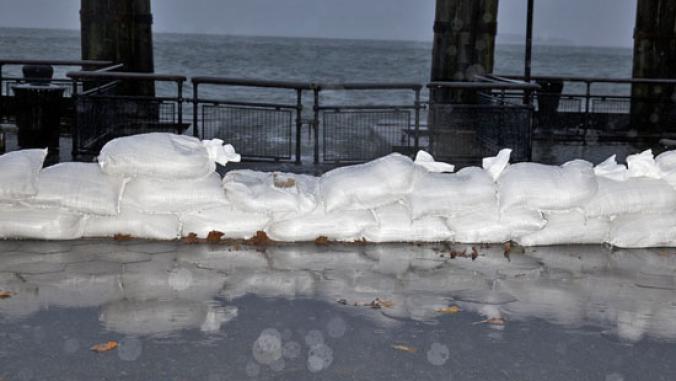Michelle Obama's Garden and the TARP Mess
One of the few sustainable things that have come out of Washington in the past week is Michelle Obama's garden. The new First Lady has dedicated 1,100 square feet on the South Lawn of the White House to grow organic vegetables and fruits, including arugula, other greens, berries and herbs. I give Michelle's garden an enthusiastic two thumbs up. "Unfortunately," writes Leanne Tobias, "I'm not nearly as pleased this week about Michelle's husband."

One of the few sustainable things that have come out of Washington over the past week is Michelle Obama's garden. The new First Lady has dedicated 1,100 square feet on the South Lawn of the White House to grow organic vegetables and fruits, including arugula, other greens, berries and herbs. I give Michelle's garden an enthusiastic two thumbs up. Growing your own vegetables is healthy, self-reliant and delicious, and is something that most Americans with a patch of dirt can aspire to. No land? Creative apartment dwellers have made do with window boxes in a sunny place, at least to grow herbs and smaller plantings.
Michelle's garden resonates with me because it represents a small, affirmative step that an individual or a family can take to put things right in the midst of chaos. In many ways, sustainability begins at the personal level with the desire to be accountable and to build a more positive future. With any luck, a commitment to sustainability begins to ripple outward, affecting one's family, one's work and, with time, larger institutions.
Unfortunately, I'm not nearly as pleased this week about Michelle's husband -- or, at least, about some of his hires. I'm referring here, to the Obama administration's handling of the infamous AIG bonuses and the TARP program generally.
On the AIG situation, the president has talked a good game. In January, he called the $18.1 billion in 2008 Wall Street bonuses "shameful." On March 16, he termed the latest round of AIG bonuses -- the infamous $165 million, now estimated at over $218 million -- an "outrage", and directed his Treasury Secretary to "pursue every single legal avenue to block these bonuses and make the American taxpayers whole." Speaking on 60 Minutes on March 22, the president sympathized with public frustration: "Because ... if you go to North Dakota, or you go to Iowa, or you go to Arkansas…folks would be thrilled to be making 75,000 dollars a year -- without a bonus."
As my dad used to say, though, "Talk is cheap." Unfortunately, the Obama administration's management of TARP and AIG has continued the Bush administration's practice of releasing billions in taxpayer funds to financial institutions with what appears to be limited oversight and little interest in assuring accountability for how the monies are spent. The U.S. Treasury is the 80 percent equity owner of AIG and its sole source of credit, and yet refused to stop the issuance of employee retention bonuses because the strategy might be, in the words of Treasury Secretary Tim Geithner, "legally difficult." Hint to the folks at Treasury: Standard business practice is to stop the payments, escrow the disputed amounts if needed, renegotiate with AIG and then (if necessary) look for legal justification.
In the bad to worse department, TARP has paid face value for contracts collateralized at the 56 percent level (another hint for the folks at Treasury: Standard accounting practice values assets at the lower of book value or the value of the relevant collateral), and has allowed TARP recipients to double-dip by not deducting from their original TARP payouts additional TARP amounts received via AIG.
I support the bailout -- I believe that it was necessary for the U.S. government to step in to prevent failure of the financial system. At the same time, I believe that TARP should be overseen carefully, with full regard for restoring accountability on Wall Street and for the respectful and responsible use of taxpayer dollars. To work, TARP needs to be seen as putting things right in the midst of chaos. In other words, TARP needs to be administered sustainably. Unlike Michelle's garden, it hasn't been.
Leanne Tobias is founder and principal of Malachite LLC, an advisory firm that specializes in the development, leasing, management, financing and certification of sustainable or green real estate on a global basis. Comment online, or write to Leanne about your green real estate thoughts and experiences at [email protected]. She'll share the best of reader feedback in future posts.
Image by scol22.





